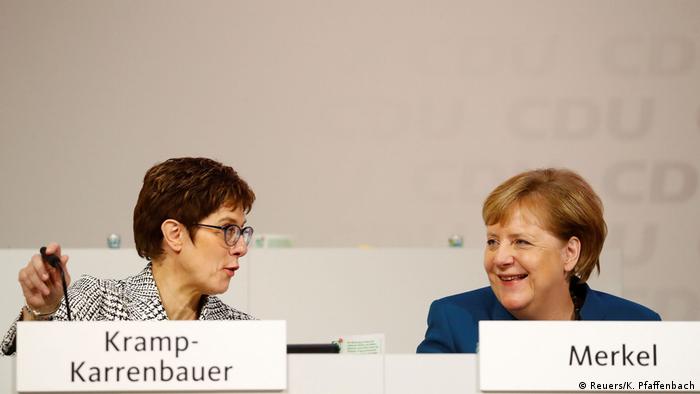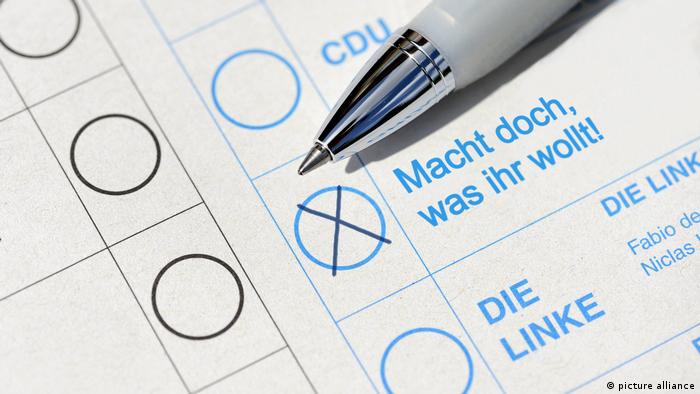The Germans like stability, Angela Merkel, likes stability. But the German policy promises in year 2019 much, except stable. It comes to elections?

Despite all the political strife in the past year: Angela Merkel 2019, the number one – even if it is more, the CDU-Chairman, but “only” Chancellor of the coalition of CDU/CSU and the SPD.
“Merkel still has the stitches in the Hand,” says the Berlin political scientist Thorsten Faas. “Against your will, you will not be able to force them out of office.”
To overthrow a Chancellor, that is not in Germany, not so easy. In any case, the Parliament cannot decide without the other: We “distrust” of Angela Merkel.
Similar once happened in the Weimar Republic, too often, had a destabilizing effect, and the beneficiary of the rise of the national socialists to power, Adolf Hitler’s 1933 takeover. From this historical experience, the fathers and mothers learned of the basic law, and certain 1949: A motion of censure only if this is “constructive”. That means Merkel can only be voted out of office, if a successor is waiting in the wings, can convince a majority of the Bundestag. However, a majority of eligible Merkel, counterparty is not in sight.
As long as Merkel wants it
So far, Merkel responds to the question of how long you wanted to stay Chancellor, with reference to the normal end of the legislative period, i.e. 2021.
However, it is to return also apply, like the last one a surprising a waiver of the party presidency has shown. You could explain, almost overnight, your resignation. So how did Willy Brandt, one of your predecessor in office, in 1974.
The basic law does not in this case, mandatory new elections. It is also a transitional Registrar and could lead as long as the government until the Bundestag elects a new Chancellor.
However, this would not be a really statesmanlike at the end of the Era of Merkel.

The new CDU-Chairman, and the “old” Chancellor are considered to be a stable Team
More elegant would be to provide Parliament with the so-called trust question. The other said to be weary of the Chancellor. Here, too, the basic law created stability principle, the following applies: new elections would be avoided, unless a new Chancellor would be. For example, Annegret Kramp-Karrenbauer, the main figure in Merkel’s “Mission retirement”.
A partner exchange without new elections?
That’s the theory. “However, all parties in the government coalition are nervous, your View on the ground,” says Faas. “A permanent condition it can be.”
Especially the SPD is unstable. After the European elections in may 2019, or the agreed between the balance-sheet of the coalition in the late autumn of 2019, the social Democrats could get out of the Grand coalition, the internal party pressure to reduce.
Merkel could make a scenario with a minority government and from the Greens and the FDP tolerate. For more, the FDP is not, at least under Merkel. Kramp-Karrenbauer would perhaps assume in 2020, and then with new partners, a real coalition forging.
Elections in 2019, want to avoid the coalition parties – for several reasons. “Not in the mood” to new elections, according to his own statement, the new CDU General Secretary Paul Ziemiak.It is likely many of his parliamentary colleagues of the CDU, CSU and SPD, speak from the soul. Because in the current bad poll, you would put values in the case of new elections, the seat of Parliament and a career in the game.

The people’s parties, the CDU and the SPD losing in Germany to consent
Also, the Federal President is not a Fan of elections. He would be according to the fundamental law responsible for this declare.
The election year of 2019: Good prospects for the AfD
What supports Merkel: A majority of citizens want, that she remains Chancellor, revealed the latest Germany-Trend. Your popularity ratings are rising again. But their biggest opponent – the right-wing populists could annoy Merkel also 2019 powerful.
For example, in the European election. “Those by-elections protest parties play more in the hands,” says political scientist Faas. In the European Parliament, the AfD wants to make up with populists from Italy and Austria, a network. If it works, is uncertain. But the choice, is expected to will bring, in comparison to the last European elections, the far-right group, more mandates, money, and influence.
In addition, there are in the fall of 2019 in the three state elections in Eastern Germany, which has to overcome the CDU. In Thuringia, Saxony and Brandenburg, the AfD could become the strongest force.
In addition, local elections are held in nine provinces. Accordingly, the AfD could be in many places at the political base-that is, in city parliaments and circle days.
Merkel’s Plan for 2019: The CDU needs to get back to the AfD lost voters. If this does not work, there will be unrest in the party.
The elections in the new year “will ultimately decide whether the government holds or not”, says policy expert Faas. Then the probability that it is still early Federal elections is on the rise.